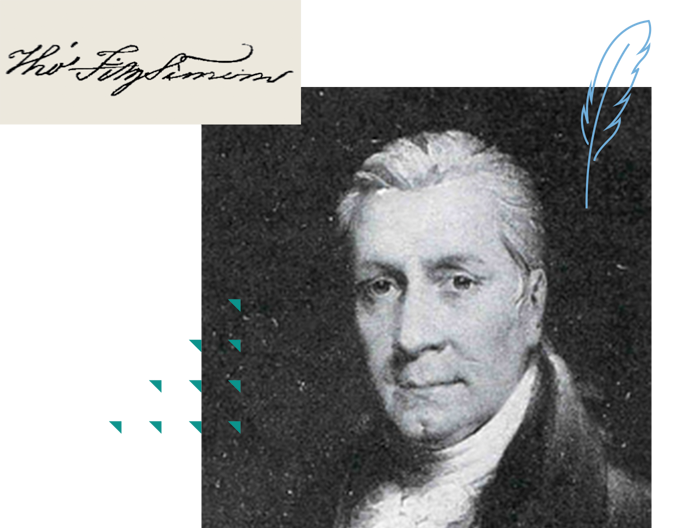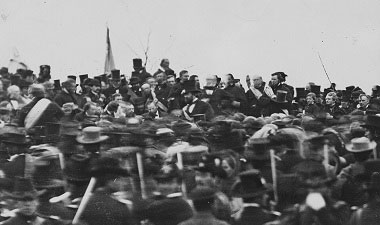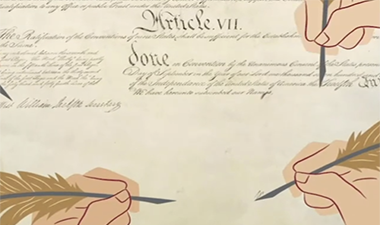Summary
Thomas Fitzsimons was a reliable nationalist at the Constitutional Convention of 1787 and one of two Catholics to sign the Constitution.
Thomas Fitzsimons | Signer of the Constitution
2:49
Biography
Thomas Fitzsimons was born in Ireland in 1741, but his family immigrated to Philadelphia around 1760. Thomas arrived with enough education to begin work as a clerk in a mercantile business. By November of 1761, he had married and formed a business partnership with his wife’s brother, George Meade. For over forty-one years, the two partners operated their firm successfully, specializing in the West Indies trade.
Parliament’s new revenues after the French and Indian War disturbed Meade and Fitzsimmons’ business and turned Fitzsimons into an activist. He organized fellow Irish merchants in a protest against the Coercive Acts in 1774 and, when independence was declared, he commanded a militia company assigned to guard the city. He also served on Philadelphia’s committee of correspondence, its council of safety, and its navy board, and his firm provided supplies to the military.
In 1782, Fitzsimons entered formal politics as a delegate to the Confederation Congress. The following year he served in the legislature and was appointed to the Pennsylvania council of censors. When the Constitutional Convention was called, Fitzsimons was one of the eight delegates from Pennsylvania. Fitzsimons’ presence at the Convention merited only brief mention in William Pierce’s sketches of the delegates; in fact, Pierce devoted only one line to Fitzsimons, noting he was a “Merchant of considerable talents” and had a reputation as a good speaker. This reputation was not tested at the convention, for Fitzsimons made few contributions to the debates, although informally he was known to voice his opinions. Madison’s notes reveal that Fitzsimons was a reliable nationalist, voting for a strong central government, the power of Congress to impose tariffs on imports and exports, and an advocate of an unsuccessful effort to end slavery. Fitzsimons’ real distinction at the convention was that he and Daniel Carroll of Maryland were the only Catholics to sign the Constitution.
After the constitution was ratified, Fitzsimons continued his political career. He served in the first three sessions of the House of Representatives as a Federalist, voting for a strong navy and protective tariffs. He co-drafted the 1794 law authorizing the original six frigates of the U.S. navy. He also joined eight other representatives in voting against the 11th Amendment that provided sovereign immunity to the states, that is, protected states from lawsuits brought by citizens of other states or foreign countries.
By 1794, Federalist popularity had waned in Pennsylvania due to the federal government’s use of the military in suppressing the Whiskey Rebellion. Thus, Fitzsimons lost his bid for a fourth term in the House. Fitzsimons never held office again although he remained a staunch supporter of Federalist programs and policies. His experience as a merchant shaped many of his political views during the 1790s and the early 1800s. Fitzsimons was quick to advocate retaliation against both British and French interference with American shipping and he opposed Jefferson’s embargo of 1807.
Overall, Fitzsimons’ status in Philadelphia society rested not on his politics but on his business leadership and his philanthropy. He was a founder of the Bank of North America, and he helped organize the Insurance Company of North America. He served several terms as President of the Philadelphia Chamber of Commerce. Although his financial affairs took a bad turn in 1805, he rebuilt some of his fortune. He was known for his generous support of Philadelphia’s St. Augustine’s Roman Catholic Church and his advocacy of enhancing the state’s public education.








